-
Colby Deleeuw
Suspending Stress
Graded reviews and essays; physical aptitude tests and military assignments; academic, athletic, and military commitments pull my attention and patience in several directions as I progress through the Academy. It’s almost as if I’m locked in an arena bounded by the black gates of the Academy, pitted against the Dean of Faculty, Athletic Director, and Commandant of Cadets. I dodge throwing knives and sword thrusts of academic assignments, athletic baseline requirements, and military duties that slowly bleed and rip through my physical and mental fortitude. Though they individually pose no threat, the culmination leaves its mark and takes its toll on my resilience. While continuing in my journey through the Academy, I have found shelter to provide a moment of respite after experiencing the trials and tribulations imposed on cadets. Far from being perfect and free from conflict, I can seek solace in the comfort that this corner of the arena, my querencia, provides to collect my thoughts, reevaluate my trajectory, steel my resolve, and prepare to reengage with my opposition.
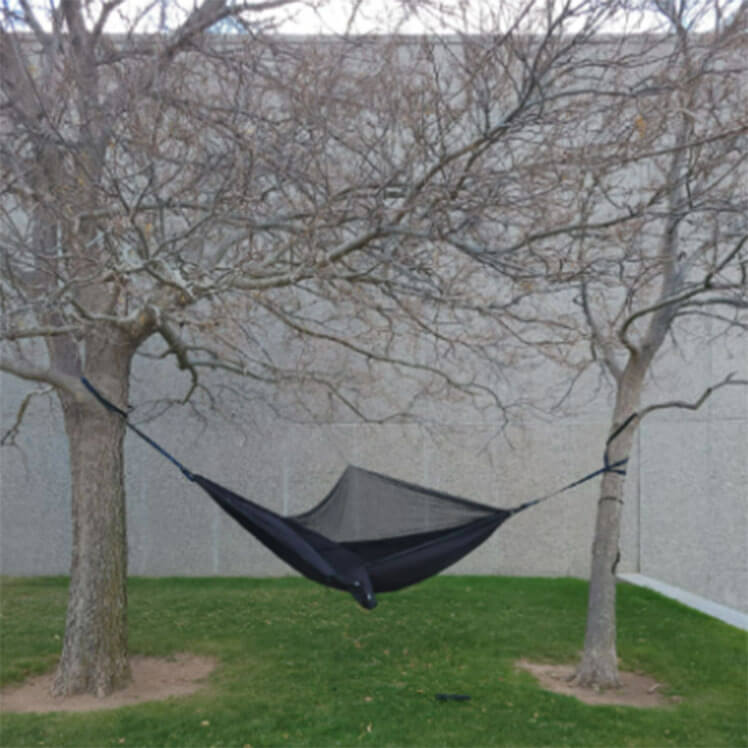
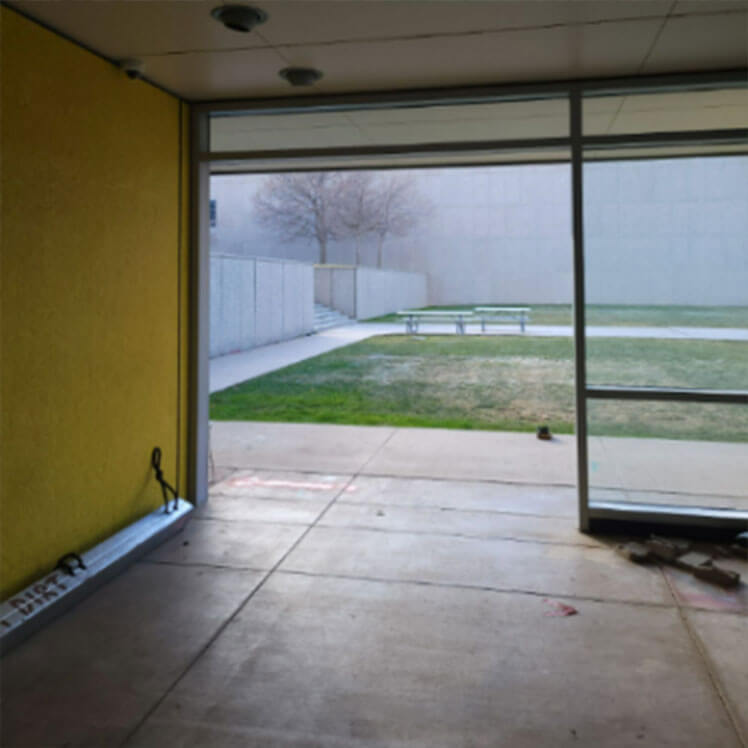
Heading toward my querencia, I have to pass through the stairwell of the squadron that functioned as my training ground during freshman year. The stairwell evokes memories of several fiesta brava, festivals of bravery, where the upperclassmen held training sessions of grueling physical and mental conditioning for my freshman class. These typically comprised recitations of mandatory military knowledge that build the foundation of our core values as service members. One training session, nicknamed the stairway to Heaven, was comprised of six separate stations over the six floors of the stairwell that involved reciting the Code of Conduct while performing physical training under intense pressure. Thoughts of sweat collecting in my uniform with each burpee, spit landing on my cheek, and sheer ecstasy from removing my boots at the end of the day send a shiver down my spine. The sweat pooled into a small puddle while wringing out of my shirt, then wiping the amalgamation of sweat, tears, and spit from my brow. In stride, I continued toward my querencia without turning back toward the stairwell of my stomping ground which challenged my limits and pushed me to grow further.
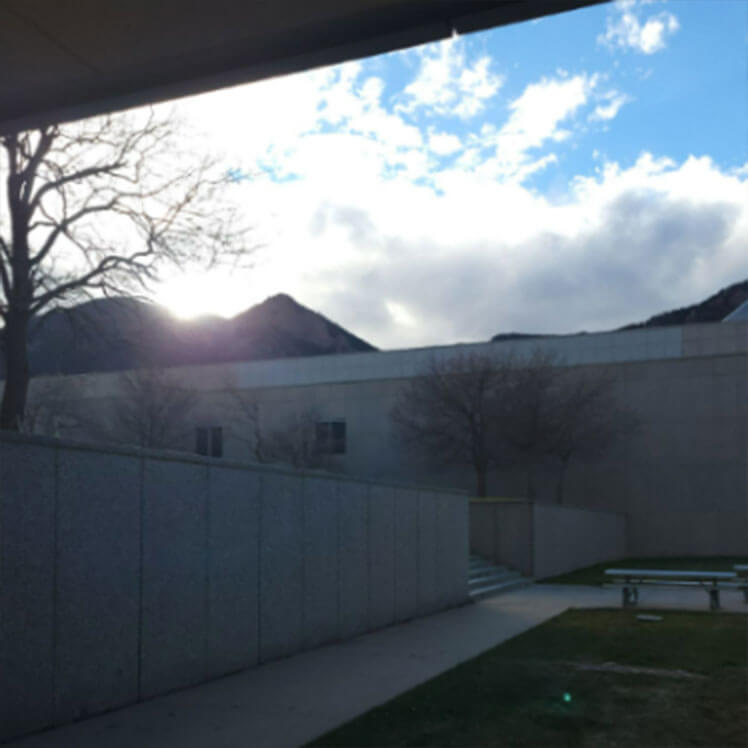
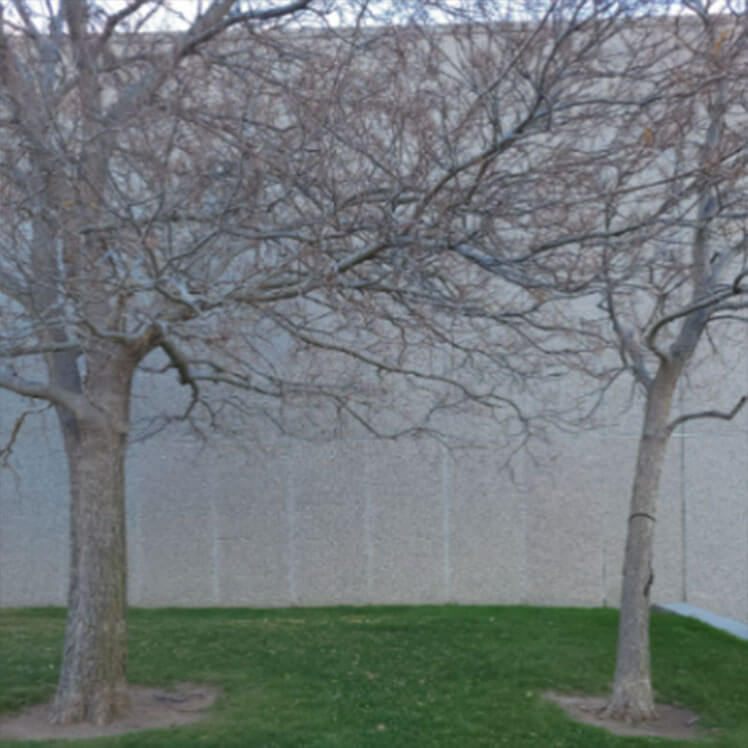
Stepping out, the rush of cool air caresses my face and tickles my nose while the sun imparts a gentle warmth and tree branches welcome my arrival. With the wind and sun contending to control my body temperature, I steadily approach my querencia comprised of two sturdy trees, smelling the trace of distance lands carried by the wind, far removed from the Academy’s fence line. A subtle yet crisp note of pine gently lifted the burden from my shoulders, standing taller while feeling further removed from the stressors in my life. Running my hands along the bark hardened by the elements and the firm foundation of the trunk grounds my consciousness and reminds me that there is more in life than the mounting stress produced by the Academy. Slowly, the sun traverses closer to the mountain ridge, subtly giving way to the wind’s cold grasp. However, I pull out the hammock that will bear my weight and worries, wrapping the worn straps around the roughed trunks. I clip the carabiners as they click into position and place faith into my creation as I relinquish my soreness and pain to its gentle embrace. It creaks, cracks; it suddenly slips, briefly introducing my body to free fall; yet, it holds all that I am, the wind slowly swaying the branches and rocking me back and forth. I reach down for “The Myth of Sisyphus” to engage my mind and initiate self-reflection, but my mind steadily drifts away to encroaching memories.
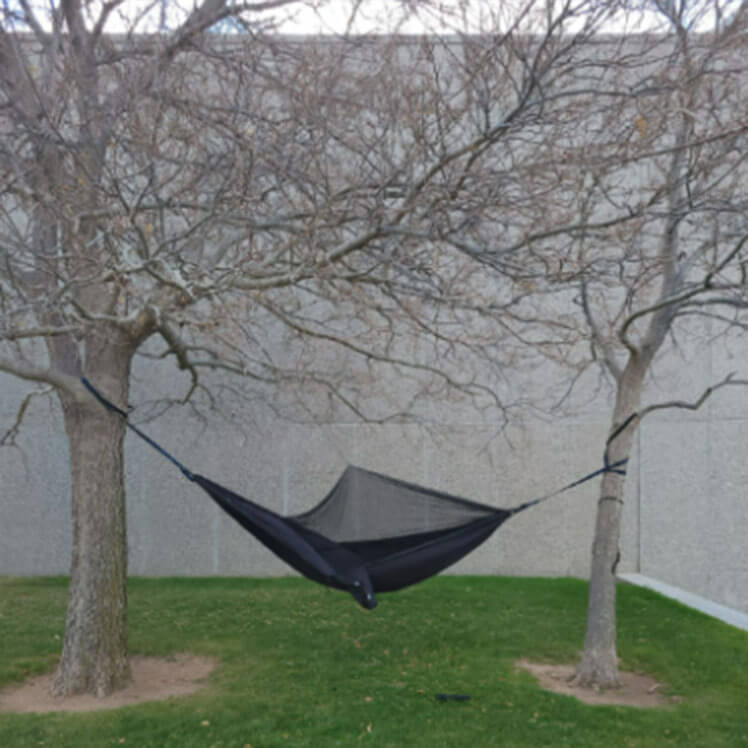
My querencia brings back thoughts of the culminating fiesta brava that was held toward the end of freshman year known as Recognition. Recognition served as the final culminating event to demonstrate my graduating class’s growth through three intense days of sleep deprivation, physical exhaustion, and mental overload. I replay the memory out on the field overlooking my querencia. My arms and legs were exhausted from driving the Earth away and being dragged down by the cruel clutches of gravity. My legs buckled as we ran suicides between the groups of upperclassmen separated by their class year, desiring what’s beyond our physical and mental limits. They demand that we greet their group numbering nearly 25 total in the order of their rank and last name. I chuckle while thinking of the butterfly kicks, burpees, push-ups, squats, lunges, sit-ups, mountain climbers, and Russian twists that I promised myself to never perform after being recognized for my growth by my upperclassmen. A gust of wind whips and turns the welcoming wave of the branches into a wild flurry, snapping me back to the present. It’s gotten too cold for comfort as the sun has set over the mountain ridge and given way to the night. I take my time packing away my hammock, steadily returning to the mindset I’ve developed to succeed at the Academy, returning through the stairwell and acknowledging how far I’ve come as I return to the fray.
My querencia, though not far removed from the arena of the Academy, provides a sense of relief as I settle into the embrace of my hammock, engage in light reading, and drift into self-reflection. Passing through my freshman year squadron stairwell provides an opportunity to reflect on the hardship I have overcome, how much I’ve grown, and what is left to complete before I depart from what will become a distant memory. The momentary abatement from the Dean, Commandant, and Athletic Director’s assault provides enough respite to overcome and best my opposition. “The Myth of Sisyphus,” “Understanding Comics: The Invisible Art,” and “Call Sign Chaos” provides wisdom from the lessons of those that have made mistakes or reflected on aspects of life. Ultimately, I reground myself, collect my thoughts, and feel prepared for my final battles of the semester.
-
Nimrod Nakar
By the rivers of Babylon, there we sat down, yea, we wept, when we remembered Zion
When I was 11 years old, I went to a family wedding in the south of Israel with my father and grandfather. The son of my grandfather’s cousin married an American woman. The guests were a mixture of immigrants from Iraq and residents from the United States. It was a wedding of different cultures, as in my family; my mother is an American, and my father was born in Israel to parents who emigrated from Iraq in the early 1950s as children. Suddenly the DJ played a rhythmic song in Arabic, which I had never heard before. Immediately a group of mature people in their 70s and 80s, including my grandfather, jumped onto the dance floor with joy. They all knew the song’s lyrics by heart and sang together loudly.
It was one of the rare moments I saw my late grandfather joyful; I could see tears in his eyes. My father was surprised and asked his father for the song’s name. My grandfather said it was “Fog al Nakhal.” A day later, my father and I searched the web to understand what excited my grandfather. We heard many versions of the song, trying to understand the lyrics in Arabic.
“Fog al-Nakhal” is one of the most popular folklore songs in the Middle East. Usually recognized as Iraqi, “Fog al-Nakhal” also appears in the repertoire of several Middle Eastern communities and nations. Courtney Blue claims that “…. each community constructed its narrative about the song to foster a sense of belonging” (Blue1). The song was written in Iraq and was published almost throughout the Arab world and beyond. Over time, many changes and additions were introduced from different parts of the world, and today you can find many versions that include words, lines, and entire sentences that do not appear in other versions.
The conversation regarding the meaning of the title, “Fog al-Nakhal,” is ongoing. The reason for this is the proximity of the words “above the palms” at the beginning of the song. Another version suggests that the song’s writer was a poor guy who fell in love with a rich girl after they accidentally exchanged glances when she saw him from the balcony of her big house. Hence, the song’s first sentence can be slightly different and have a different meaning: ‘I have a friend upstairs.’ Although the palm version has no direct connection to the song — it is the one the audience liked more and became well known. The song’s authorship is attributed to several different composers, such as the prominent Iraqi-Jewish musician Salah Al-Kuwaiti (1908-1986), though in some cases, it is cited as anonymous. At the end of this essay, a solution to the mystery will be given based on a reliable source.
Salah Al-Kuwaiti and his brother, Daud Al-Kuwaiti (1910 – 1976), were Kuwait-born musicians of Iraqi Iranian ancestry who were one of the most essential and successful musicians in Iraq and the Arab world the first half of the twentieth century. The brothers, born in Kuwait to a Jewish family who originally immigrated from Iraq, had a pioneering role in the modern classical music of Iraq and Kuwait. While still children, the brothers started performing for dignitaries and Al Sabah ruling family members in Kuwait. The lightning success brought the brothers back to Iraq In 1928, at ages 18 and 20, and they continued their music careers. At first, the brothers returned to Basra, where they performed and recorded with great success, and later they went on to Baghdad, the primary musical capital of the period, and there they became real stars. In 1932 at the time of Iraq’s independence, the brothers gained Iraqi citizenship. The songs Salah Al-Kuwaiti composed were performed by the greatest Iraqi singers, including Salima Murad and Sultana Yusuf, and were played all over the Arab world and the Persian Gulf.
Salah and Daoud Al-Kuwaiti never denied their identity as part of the Jewish community. Although the official attitude towards Jews in Iraq was hostile, they became favorites of King Ghazi, the King of Iraq, from 1933 to 1939. They were even asked to establish the National Radio Orchestra of Iraq, which broadcasted from the king’s palace. Faisal II (Schweitzer2), the only son of King Ghazi of Iraq, also adored their music. King Faisal II was the last King of Iraq.
The promising career of the Al-Kuwaiti brothers was interrupted by their decision to emigrate to Israel in the great wave of Jewish immigration of the early 1950s. My grandfather also emigrated to Israel from Iraq at the same time, when he was 12 years old. The ruler of Kuwait, Mubarak al Sabah, begged Saleh to withdraw his decision to emigrate to Israel. He believed that Saleh’s departure would severely blow the Kuwaiti and Iraqi cultures and render the sheik’s life far less enjoyable. (Schweitzer2)
When they left Iraq, the attitude towards the Al-Kuwaiti brothers changed, as it happened to all the Jews. Their Iraqi citizenship was revoked, as it was canceled for all Jewish immigrants. The process of erasing the Al-Kuwaiti brothers from Iraqi history was gradual; in the first years, local Muslim artists began to appropriate their songs. Little by little, their name disappeared from the radio programs, although their songs were still played. The process reached its peak after Saddam Hussein came to power. In 1972, he established a committee at the Broadcasting Authority. One of its instructions was to delete the name of the Al-Kuwaiti brothers from all official publications and the music academy curricula.
It pained the Al-Kuwaiti brothers to hear their songs on Arab radio stations without their name being mentioned, at best, and when their songs were credited to another artist, at worst. They loved Iraq, and the demonization done to them hurt a lot. The Al-Kuwaiti brothers could not reproduce their success in Israel as in Iraq. In their first days in Israel, they lived in an immigrant and refugee absorption camp and then moved to the Hatikva neighborhood in Tel Aviv, where they used to play for customers of the “Noach” cafe. After a complex absorption process, the brothers began broadcasting an hour-long radio program on the voice of Israel in Arabic, singing and playing as guest artists with the radio’s Arabic orchestra.
Despite the incredible popularity of the radio program among Iraqi Jews in Israel and Arabs from neighboring Arab countries, the Al-Kuwaiti brothers felt that they had been placed in a cultural ghetto. Their music was primarily disregarded, with limited opportunities to perform and record. The attitude of the Israeli establishment towards Eastern and Arab culture during their time did not allow the Al-Kuwaiti brothers to maintain the great success they enjoyed before immigrating to Israel. Moreover, the difficulty of the Al-Kuwaiti brothers arose because the new country was at war with the previous country. Arab culture was treated with contempt by the Israeli society and government (Schweitzer3). The gap between their recognition in Iraq and their lack of recognition in Israel caused the brothers great disappointment. In Iraq, they left a large fortune and were associated with the king’s palace, and in Israel, they were treated with suspicion and condescension. As a result, they forbade their children to study music. Salah’s son spoke about his father’s ban in the film Iraq N’ Roll4: “When I was working in the summer, I came to him to ask to buy a guitar with my money because I knew he forbade it, so he told me: ‘Look, you can buy the guitar, but I will break it for you.'”
The hard feelings of the Al-Kuwaiti brothers towards their new country were typical of many Jews who emigrated from Iraq to Israel then. When two Zionist immigration activists were hanged in Baghdad in the 1950s by the Iraqi regime, the feelings that characterized most of the new immigrants from Iraq were “feelings of Gloating.” Quite a few Iraqi immigrants responded to the hanging with the words, “This is God’s revenge on the movement that brought us here.” This response points out that many Iraqi immigrants did not share the activists’ feelings about returning to Zion (Israel) and considered the Zionist movement responsible for the fact that they were brought to Israel out of interests that were not theirs (Shenhav5). The disappointments felt by the Al – Kuwaiti brothers from the new country can characterize many immigrants anywhere in the world; there is nothing new about that.
The Al-Kuwaiti brothers only got their name restored in Iraq after their deaths. The overthrow of Saddam Hussein slightly changed the cultural climate in Iraq, and researchers and media are currently trying to regain its musical legacy. A TV series about the Iraqi music of the 20th century was broadcast, and the Al-Kuwaiti brothers were given an important place. Their songs were recognized as a heritage asset of Arab music. Furthermore, the rehabilitation of their name sparked a public debate in Kuwait and Iraq, in which each country tried to claim ownership of the brother’s heritage.
Even in Israel, the attitude towards the Jewish-Arab musical heritage and the Al-Kuwaiti brothers has changed. After years of alienation, the second and third generations of Iraqi Jewish immigrants are looking for a connection to their heritage and want to hear and learn the music. in addition, in 2011, a street was named after the Al-Kuwaiti brothers in the Hatikva neighborhood in Tel Aviv(Franks6). In 2011, Israeli rock musician Dudu Tassa, Daoud’s grandson, formed the band Dudu Tassa and the Kuwaitis to play his grandfather’s and great-uncle’s music. The band has recorded two albums and has toured in Israel and elsewhere, opening for Radiohead in their 2017 United States tour.
Dudu Tassa, in a recent year’s interview (Gluckin7), attributes the authorship of the song “Fog al-Nakhal” not to his great-uncle Sallah but to Nazem al-Ghazali (1921 – 23 October 1963), who was one of the most popular singers in the history of Iraq and the Arab world. However, Tassa acknowledged that his grandfather and uncle did play “Fog al-Nakhal.”
At the end of my short journey around “Fog al-Nakhal,” I can now realize why “Fog al-Nakhal” made my grandfather happily cry in 2011. “Fog al-Nakhal” symbolizes past lives in a homeland that its immigrants could not return to due to political affairs. The song reflects for my grandfather’s generation the longing for another country and its landscape (the palm trees that Iraq is known for), the enthusiasm for the previous culture and identity that eventually changes during immigration. Ironically, now I can easily imagine the Al-Kuwaiti brothers and my late grandfather sitting down in Zion, by the Mediterranean Sea beach of Tel Aviv, and weeping while remembering the rivers of Babylon. That weeping about past lives crossed the people who burst onto the dance floor eleven years ago, in 2011, in the south of Israel.
Lyrics Translate. n.d. 19 October 2022.
Above the palm trees, my father فوق النخل فوق Above the palm trees يابا فوق النخل فوق I do not know what that is shining; my father ما دري لامع خدك either her face or the moon يابا مادري القمر فوق And I swear I do not want her, والله ما اريده she is putting me in trouble باليني بلوه Your shiny cheeks, oh my love خدك لامع يا هوايا and my eyes enlighten the country عيني وضوا على البلاد I have no patience to rest oh my eyes وضوا على البلاد while she is so far away ما قدر ع صبر الروح and I swear I have been tortured عيني وتحمل بعاد by her beautiful eyes والله معذبني بعيونه الحلوه -
Teagan Renn
1716 Shoreline Drive
For context, I would like to think my high school classmates and I had quiet unprecedented times to live through. When we were all freshmen, no one asked us if it we were happy spending our years of self-discovery through the deaths of our classmates and a worldwide pandemic? The friends I found those four years are unlike some I will have throughout the rest of my life. More specifically, a group of seven that I shared unimaginable adversity with. Somehow, most of us ended up going to college. The greatest fortune that kept us together was our shared good place. In this case, one of my best friends had grandparents who owned a lake house. It was a simple two-story home on the water that had a beautiful pool, boat dock, and enough freedom to allow us to escape from some of the troubles haunting our teenage lives. Countless relationships came and went through that house: high school girlfriends, close family members, forgotten friendships, and the occasional addictions. The only thing that withstood those four trying years were the seven of us and the same lake house we fell in love with going into high school.
I lived about twenty minutes away from my good place, in the same neighborhood that all seven of us shared. As I drive with each mile that passed I could feel all tension, stress, anxiety, and depression lift away. Once I drove over the little bridge that connected me to my worry-free world, I knew I was close to my own mental paradise. 1716 Shoreline Place is the address as the property is listed as 4,141 square feet, 4 bedrooms, and 6 baths of pure memories and euphoria. Now heads up, not all memories at the good place were happy ones. Once I park and get out of my car, I take the same cobblestone driveway I took five years earlier when the seven of us grieved Maddie’s suicide. Sadly, she was not the only one we grieved on this same cobblestone driveway. Some nights tears filled the missing chunks that littered this pathway; while other occasions, they were filled with spilled drinks and laughter.
Continuing up the driveway, always enter the house through the garage door, as the front door was left for the countless amount of pizza delivery men and Door dash drivers we encountered those four years. Once inside, I am immediately grasped by the comforting smell that I know too well, the feeling of pure bliss was addicting once inside. I am greeted by a quaint living room consisting of a flat screen, two couches, and three recliners with a bay window that gave a postcard perfect view of the lake. The same TV is still there that we used to host our first New Years party all the way until our joint high school graduation party. Those same couches and recliners quiet literally slept half the state of Florida, some mornings I would wake up having no recollection of the stranger across from me. That is a quality of this house that made it unique; although we had tons of people who used to same garage door to come and go, at the end of the day there was always the seven of us.
I could try to go on and on about the marble counter topped kitchen and classical decorated dining room that occupied our good place, but besides hosting the most awkward junior year homecoming dinner, it really served no purpose. Now, on the other side of the green-tiled kitchen wall is the white-carpeted staircase which served as the bridge for, what felt like, our two different lives. Our group knew everything that happened downstairs were memories shared with our additional friends and family. As for upstairs, that was our own personal space, what happened upstairs always stayed upstairs. The second floor contained three bedrooms all connected by one shared balcony. The shared balcony housed plenty memories of its own. Everything from launching fireworks off of it every Fourth of July to me informing the rest of the group about Seth’s fatal overdose were shared here. Once we stepped foot onto the brick and white plastered balcony, we were truly unpredictable.
Out of the three bedrooms, one was sizeable bigger than this rest. This happened to be the catalyst for all of our arguments, just for us to all pass out in the same room together by any means necessary. For some reason, each room has a very distinct wallpaper and that became the marker to track which memorable event happened in each of our lives. The seven of us knew that the lime room (it was lime green wallpaper) was where Charlie enjoyed smoking his cigars the most and Keegan informed us of Ben’s fatal aneurysm. The zebra room (black and white stripped wallpaper) was where I told my best friends I was going to Air Force Academy for college and where Dominic found out he was finally off probation after 13 months! Last but not least, the monkey room (the wallpaper was animated monkeys), where Shelby told us she was pregnant for the second time at 17 and Lewis found out he was filed as a missing person by his parents (long story). Those are just a few of the endless memories that streamed up the same white carpet staircase that our parents have never known about.
Back down the white-carpeted stairs, there’s a sliding glass door that we spent numerous summer days sprinting through. Yes, I know what you’re thinking, it is the same sliding glass door Walker shattered with his new airsoft gun on Christmas Day of sophomore year; and the same sliding glass door we kept open the night of our joint high school graduation party. Once outside, the Florida sun and humidity can’t help but to embrace you; before we burned our feet on the bricks, we always made sure to flip into the refreshing pool. After getting out of the two-toned water, naturally I take a moment to look around and take a moment to enjoy the nice weather. This was a luxury I realized I took for granted following Hurricane Irma as she decided to uplift the backyard that the seven of us spent countless hours laughing in. Then, time to take the family boat out for a spin, days with this good of weather are not always guaranteed. I get up and walk through the lush green grass that separates me and the wooden dock we spent four months rebuilding following Irma. Luckily for us, restoring the dock fully allowed us to keep the three jet skis and boat parked right outside the good place we cherished so much. At the end of the dock, I smile as the crimson red and white stripped boat creeps into the water on the rickety boat lift. As it plunges into the shimmering water I realized it’ll be just me today, a rather unusual sight.
See what makes the good place so special, is that no matter what time, day, or tragedy we were all going through, you would always be able to find one of us here. On many instances, we did not even utter a word or send a text to each other as we all knew where to head at the end of a chaotic week. 1716 Shoreline Drive was not always filled with the best memories, but it was shared with the closest seven people imaginable. The seven of us were: Charlie, Walker, John, Dominic, Shane, Keegan, and I. The good memories made with these people far outweighed the bad that tried to plague our lives. Nowadays, it has gotten harder to keep tabs on each other as only three of the seven go to the same university; yet, none of us have forgotten the memories that house contains. I can promise, through any holiday or summer break, if you need to fine us, you will be able to at our good place.
Pictures of the Good Place:
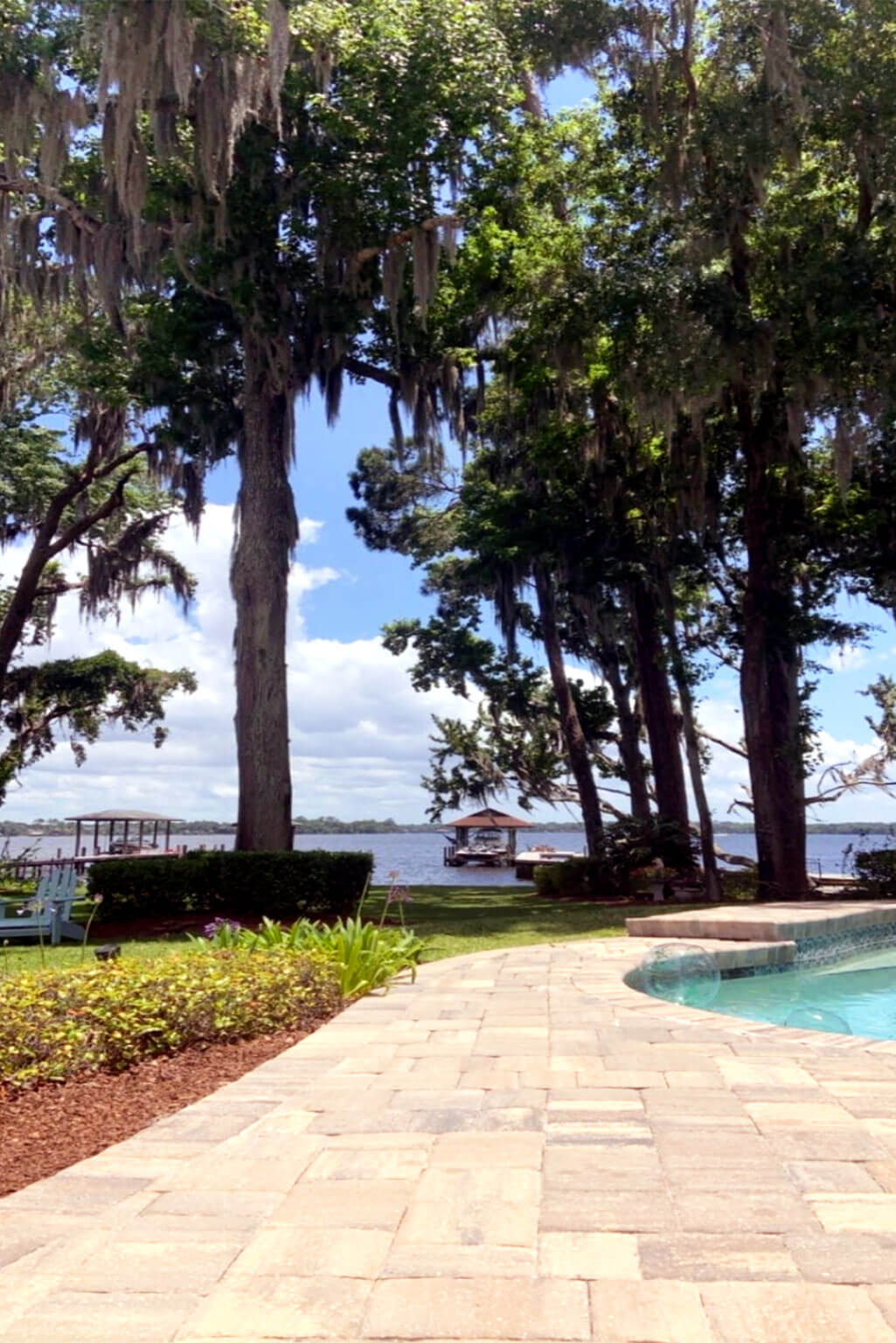
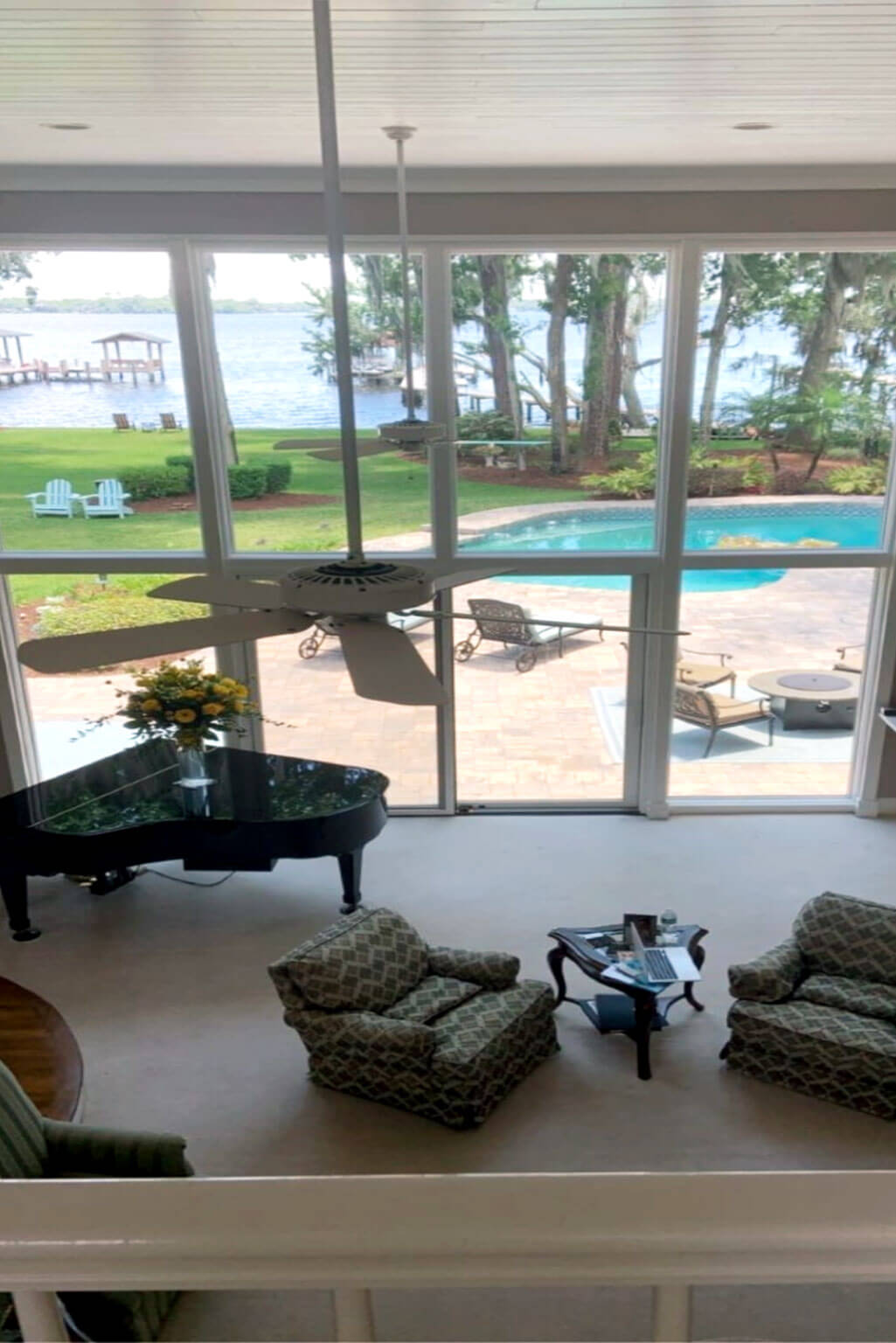
Documentation Statement:
I am the only person in the history of USAFA to ever travel here, I did this assignment independently.
-
Luke Walters
Escape
Somewhere deep in the rolling hills of middle Tennessee lies a farm. Full of life, yet quiet and peaceful, the farm is home to many. Wild turkey, coyotes, deer, fish, cows and even fox find their quiet place among the fields of corn and patches of woods. In a world full of due dates and timelines, taxes and bills, meetings and courses, the farm provides a sanctuary for the simple man. It provides a querencia.
A journey to this place begins with a message from a friend. “The weather is perfect for fishing this evening”. I’ve just gotten home for Thanksgiving break, and the outdoors in Tennessee are a perfect balance of cool fall days with cold nights. I slide on my Ariat boots with blue jeans and a Carhart sweatshirt. My fishing rods have gotten slightly dusty since the last time I touched them, and it’s about time they are broken in again. Passed down from one generation to another, my All Pro baitcaster that my grandfather once used still casts like a dream. Clayton and I load the truck with rods, tackle, burgers, buns, and of course a Yeti cooler.
The routine drive down to exit 159 is full of laughter and contentment as two old friends exchange stories and catch up on the months we’ve spent apart. With the sun about to set and Chris Stapelton on the radio, there isn’t a worry in the world other than who will catch more fish in the coming hours. After taking the exit, the real beauty of middle Tennessee begins to show. The city noise is drowned out by the sound of silence and the subtle hum of tractors in the distance. We pull up to the once shiny gate, now rusted and creaky, worn in by seasons of rainfalland harvest. I get out of the truck and unwind the chains on the fence, the last line of defense between our fishing rods and the pond. As I close the gate behind us, I can’t help but think about how simple life is at home. No due dates, no math problems, no training…
The sound of the tires on the gravel road is a relief to the ears. The structure and safety of clean pavement and straight yellow lines doesn’t exist past the rusty old gate. Out here there are no rules. The nearest convenience store isn’t for miles, and the county sheriff is simply a fail-safe. Each man is at will to enjoy the quiet isolation of his own property. We park the car and take in the smells. Cow dung is a pleasant relief from the horrors of city sewage and garbage disposals. The delicate wisp of tall grass brushing against our jeans as we walk to the pond rings in our ears. Clayton and I compare rigs before we make our first cast, guessing who will reel in the first prize. It was a warm day today, and it wasn’t too windy, so I think I’ll throw a ned rig with a green pumpkin worm on the hook. With so many pieces to choose from, it’s easy for me to go back to my roots when baiting my rod. The green pumpkin worm has never failed me, and just like the escape that fishing has always been for me in my life, it will always be a comfort for me to fall back on.
Clayton always likes to make the first cast right when we walk up to the pond, but my patience has served me well in finding the right spot along the edge of the murky water. I like to take my first cast straight into a humble little cove right at the corner of the pond. With my back to the trees, I pay close attention to the branches behind me as I whip my rod around, making my first cast. I’ve never agreed with people who argue that fishing is just luck. The gentle finesse that a rod tip requires to make the bait dance in the dark green abyss is not a matter of luck. Years of fishing have taught me that skill is just as much a component in fishing as “luck”. Precise little flicks of the rod tip, and BAM! I’ve got a bite. I set the hook and begin to reel in the little sucker.The wet line sprinkles onto my hand as I fight with the bass. It isn’t the biggest fish I’ve ever caught, but it’s a fish nonetheless.
As my grandfather likes to say, “Time’s fun when you’re having flies”. Before Clayton and I know it, the sun is doing its thing, painting a beautiful mirage of pink and orange colors in the sky. I would say it’s about time to start up the grill. Clayton and I make quick work of the charcoal, and before long, the burgers we brought are sizzling on a hot iron skillet. Without even a word, Clayton hands me my favorite beer. Blue Moon. This isn’t our first time hanging out together, and if he didn’t know my favorite beer by now, it would be a shame.
An hour or two have passed, and it seems we’ve made a fire out of habit. Sitting and staring at sparks flying out of the red and orange flames is something innate in the nature of man. Some say that America’s favorite pastime is baseball, but I would argue otherwise. A couple of our friends are on the way to help Clayton and I with the remaining contents of the Yeti cooler. As the darkness continues to set in, the five of us catch up on our lives that we’ve been living since graduating highschool. We smoke cigars and toast to the times we’ve shared over the years. I can’t help but share the stress of my life at the Academy, and as I do so I begin to feel burdened by my upcoming flight back to the Springs after Thanksgiving. It seems that I can’t escape Academy life sometimes. My time there has been such a shock to my system and a drain to my Southern life I used to enjoy. As Margaret Walker puts it so eloquently in her poem, “I belong with the smell of fresh pine… Restless music is in my heart, and I am eager to be gone”(Walker). In a place where I have always found peace in my stress, it upsets me to feel worried about academy life from so far away. Maybe I just need another drink to ease my tension.
As time passes and memories are exchanged I’m reminded of where I am. A hot fire warms our boots, the stars paint what night sky we can make out through the tree branches aboveus, and the moon dances in its own reflection on the pond that Clayton and I had fished just hours before. I’m surrounded with brothers I’ve had long since before I thought about the Academy. I take in the moment. All is good.
Documentation Statement:
Apart from the sources listed I received no help on this assignment.Works Cited
Walker, Margaret. “Sorrow Home.” This is My Century: New and Collected Poems, University of Georgia Press, 1989.